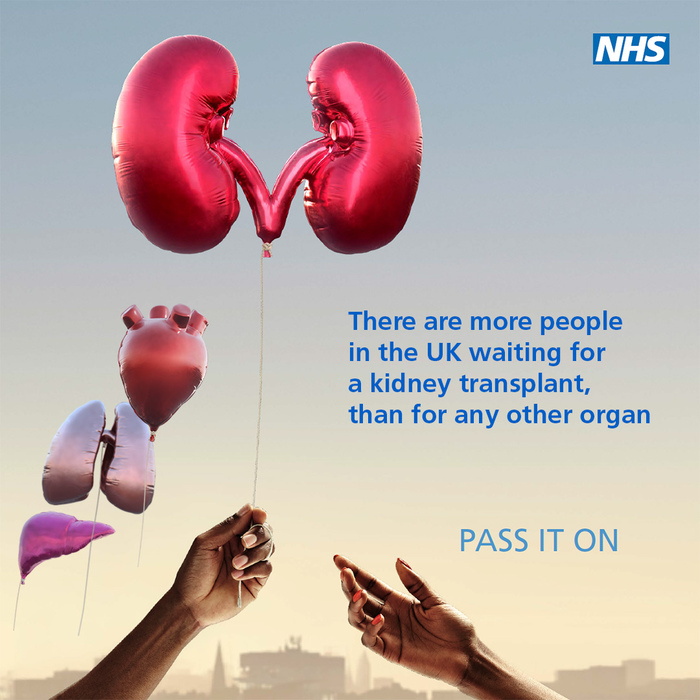Deceased donor kidney transplant
This is when you receive a kidney from someone who has died
Key points
- This is the most common type of kidney donation
- Kidneys from deceased donors are usually higher risk than kidneys from living donors
- You will need to go on the national transplant waiting list to receive a kidney from a deceased donor
- The transplant list is not a queuing system
Receiving a kidney from a deceased donor
Kidney donations are possible from people who have recently died. This is known as deceased donation.
Deceased kidney donation is the most common type of kidney donation. On average, approximately 70 in 100 kidney transplants are from deceased donors.
To try for a kidney from a deceased donor, you will need to go on the national transplant waiting list.
Comparison of deceased donor and living donor kidney transplantations
The timeframes in this table are average estimates. Please speak to your kidney care team for more detailed information about how long your transplant might last and possible waiting times.
| What's being compared? | Deceased donor kidney transplant | Living donor kidney transplant |
|---|---|---|
| Average length of time the kidney will last | 15-20 years | 20-25 years |
| Average waiting time for the transplant | 2-3 years | 3-6 months |
| Can the transplant be done before dialysis is needed? | Sometimes, but this is less likely due to the waiting time | Sometimes |
| Transplant surgery times can be planned in advance? | No – surgery often takes place at night | Yes – surgery is usually during the day |
| Chance of the transplanted kidney working within a day of the surgery | Lower. The kidney has come from someone who has died, so it takes longer for the kidney to ‘wake up’ and start working. | Higher. The kidney has come from someone who is fit and well, so it almost always works straight away. |
| Risk from the donated kidney | Higher. It is more difficult to thoroughly check the health of the donor, and because the donor is more likely to have had major health issues. | Lower. The health of the donor is easier to thoroughly check before donation. The donor is unlikely to have had major health issues. |
Answers to common questions
Talk about donation
Every year in the UK, thousands of people’s lives are saved or improved thanks to living and deceased donors. But, sadly, there are still lots of patients we can’t treat because we don’t have enough organs to transplant. We particularly need organs donated from people who are Black, Asian, or belong to a minority ethic group.
Talking about donation is crucial to raising awareness.

More information
Related content




